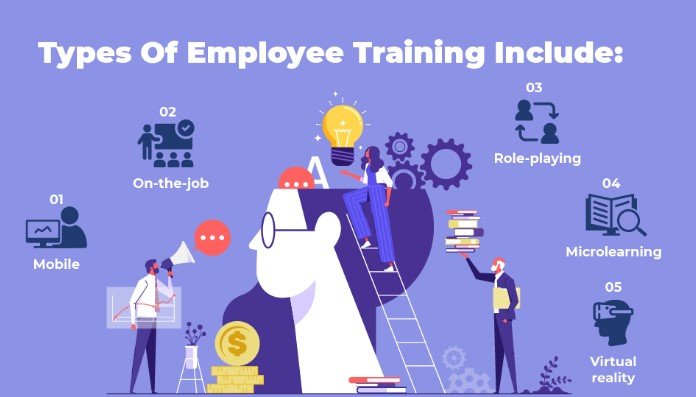Key Areas to Train Employees for Business Success

Employee training is critical to the success and efficiency of any business. Well-trained employees not only improve overall productivity but also help to maintain a company’s reputation and ensure smooth operations. To keep up with the demands of today’s fast-paced business environment, businesses need to focus on key areas where employee training will have the greatest impact. From customer service to security, comprehensive training programs can empower staff to perform better and protect the organization from risks.
Customer Service and Communication Skills
One of the most important areas to focus on when training employees is customer service. Regardless of industry, the way employees interact with customers significantly affects the company’s brand and customer loyalty. Employees should be trained to handle customer inquiries professionally, resolve issues quickly, and go above and beyond to meet customer expectations.
Effective communication is key to delivering exceptional customer service. Training employees on both verbal and non-verbal communication ensures they understand how to listen actively, respond appropriately, and convey empathy. This is particularly important when dealing with difficult customers or resolving complaints, as the right communication approach can de-escalate tensions and leave the customer satisfied.
Additionally, training employees on how to use customer relationship management (CRM) tools allows for streamlined communication and efficient service delivery. Employees should be comfortable navigating these tools to track customer interactions, manage inquiries, and follow up with clients effectively.
Workplace Safety and Compliance
Ensuring workplace safety and compliance is another critical area for employee training. Every business must adhere to specific health and safety standards to protect employees, customers, and the general public. Whether your business involves physical labor, operates in an office environment, or works with sensitive data, safety training is essential.
Employees need to be aware of potential hazards in the workplace and know the appropriate steps to prevent accidents. This includes training on the correct use of equipment, emergency response procedures, and how to report unsafe conditions. Regular safety drills can help employees feel prepared to handle emergencies, such as fires, equipment malfunctions, or medical incidents.
In addition to physical safety, compliance training should cover legal and regulatory requirements that are specific to your industry. Employees must be familiar with these regulations to avoid potential legal issues, fines, or reputational damage to the business. This can include training on workplace discrimination policies, data protection laws, and anti-bribery practices.
Data Security and Data Storage Practices
With businesses becoming more reliant on digital technologies, ensuring employees are well-versed in data security practices is crucial. Data breaches, cyberattacks, and mishandling of sensitive information can lead to severe consequences, including financial loss and a damaged reputation. Every employee, from the entry-level to management, plays a role in keeping company data secure.
In addition, the use of encryption and secure methods for data storage must be part of the training. As cloud-based storage systems become increasingly common, businesses need to ensure employees understand how to properly store, access, and share files securely. Cloud computing offers flexibility and scalability, but it also requires strong security measures. Employees should be aware of who has access to certain data and how to restrict access to sensitive information.
Company Culture and Core Values
Finally, one of the most overlooked aspects of employee training is emphasizing the importance of company culture and core values. Employees who understand and align with the company’s mission and values are more likely to feel motivated and engaged in their work. Training programs should reinforce the company’s goals, vision, and ethical standards to create a sense of belonging and accountability among staff.
Encouraging open communication, teamwork, and collaboration also fosters a positive work environment. When employees feel valued and connected to their workplace, they are more likely to contribute to the company’s long-term success.
Read also: Navigating the Business Buying Process in Canada
Conclusion
Investing in comprehensive employee training is vital to the growth and success of any business. By focusing on key areas such as customer service, compliance, time management, and company culture, businesses can create a well-rounded, capable workforce. Ongoing training not only improves employee performance but also helps safeguard the company against potential risks, ensuring long-term success in an increasingly competitive market.






